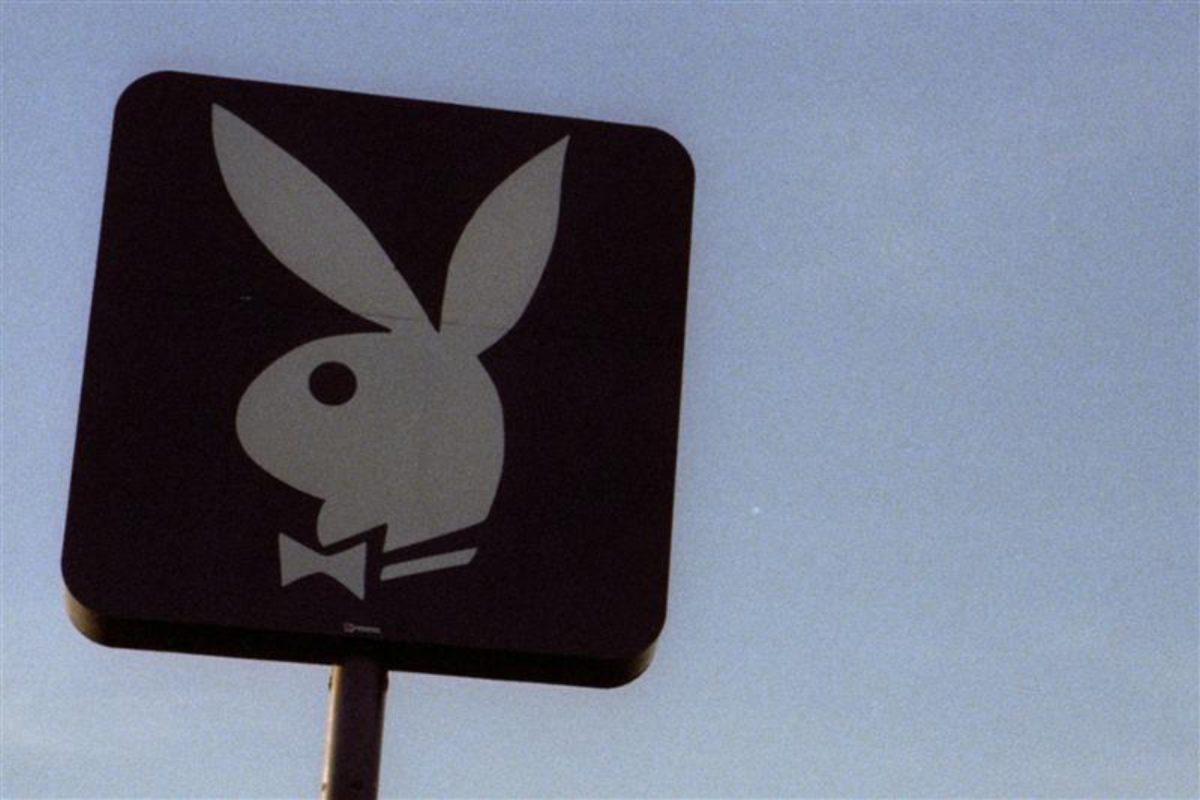Playboy is suing online clothing companies that are allegedly ripping off the Playboy brand.
Newsweek sought email comment from Playboy and online retail Alibaba on Friday.
Why It Matters
Counterfeit goods are big business in the U.S.
According to a Homeland Security report cited by Playboy in court, the U.S. government seized over $3.3 billion of counterfeit goods in 2021, up from $1.3 billion in 2020.
According to a 2021 study on the impact of the sale of fraudulent goods entitled The Counterfeit Silk Road, internet websites selling counterfeit goods cost the U.S over 653,000 jobs and lead to lost wages of over $36 billion a year.

What To Know
Playboy has migrated from adult magazines and clubs to a lucrative clothing brand, and the company is trying to cut out counterfeiters while aiming its clothing brand at younger consumers.
It launched its lawsuit against online clothing retailers on February 6. The action is being taken in a federal court in Chicago, Illinois.
Its submissions in court include a retail webpage from the Alibaba online store. It features a T-shirt that Playboy states is using the Playboy image unlawfully.
The T-shirt, available in numerous colors, features a woman suggestively licking a stamp that contains the distinctive Playboy image of a rabbit wearing a bowtie.
The company's lawyer, Michael A. Hierl, submitted the names of the defendant companies under seal.
In his lawsuit, Hierl said that the names must remain secret because the companies will destroy evidence as soon as they find out that Playboy is taking legal action.
In his legal submission, Hierl wrote that Playboy wants the names of the defendants to remain under seal until the court has granted a permanent injunction preventing the companies from using the Playboy name and image.
The company is looking for up to $2 million dollars for each of the thousands of alleged violations by China-based retailers or all the profits the companies have made from using the Playboy name and brand.

What People Are Saying
In his submission to the court, Playboy's lawyer, Michael A. Hierl states that the money from the counterfeit sales ultimately end up in Chinese bank accounts.
"Counterfeiters such as Defendants typically operate multiple credit card merchant and Aliexpress and Alibaba accounts behind layers of payment gateways so that they can continue to operate in spite of Plaintiff's enforcement efforts," Hierl said in the court document.
He added, "Upon information and belief, Defendants maintain off-shore bank accounts and regularly move funds from their Aliexpress and Alibaba accounts to off-shore bank accounts outside the jurisdiction of this Court.
"Indeed, analysis of Aliexpress and Alibaba transaction logs from prior similar cases indicate that offshore counterfeiters regularly move funds from U.S.-based Aliexpress and Alibaba accounts to China- based bank accounts outside the jurisdiction of this Court."
Constant Communications
Hierl added that the head of the companies are in frequent communication about how to avoid detection.
"On information and belief, Defendants are in constant communication with each other and regularly participate in QQ.com chat rooms and through websites such as sellerdefense.cn, kaidianyo.com and kuajingvs.com regarding tactics for operating multiple accounts, evading detection, pending litigation and potential new lawsuits," he wrote.
What Happens Next
A federal judge will be assigned to the case and must decide whether to grant Playboy a permanent injunction against the as-yet unnamed defendants.
The judge must also decide if Playboy is entitled to punitive damages and attorney fees.
However, if the defendants' money is lodged in Chinese bank accounts, as Playboy has stated, then financial recovery may be difficult.
fairness meter
About the writer
Sean O'Driscoll is a Newsweek Senior Crime and Courts Reporter based in Ireland. His focus is reporting on U.S. law. ... Read more



